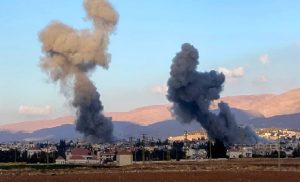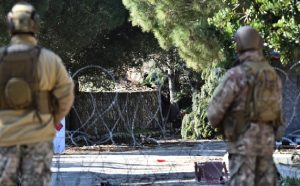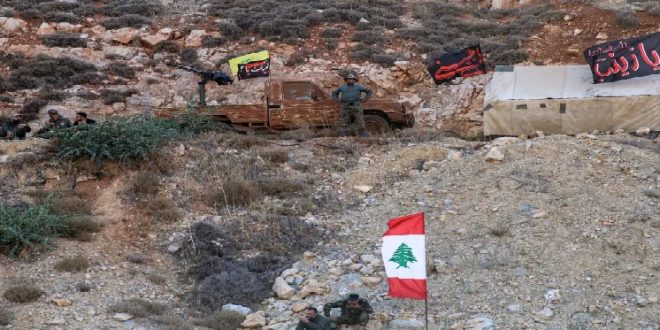10-02-2025
BEIRUT: An Israeli air raid has killed six people and wounded two in eastern Lebanon amid a fragile ceasefire between Israel and Hezbollah.
Lebanon’s National News Agency reported that a drone targeted the Shaara area, near the town of Jennata, in the eastern Bekaa region on Saturday.
 The Israeli army issued a statement saying the targets were what it claimed to be Hezbollah operatives “within a site for the production and storage of strategic weapons”.
The Israeli army issued a statement saying the targets were what it claimed to be Hezbollah operatives “within a site for the production and storage of strategic weapons”.
“Activities within the site are considered a blatant violation of the understandings between Israel and Lebanon,” it said, referring to the ceasefire agreement signed on November 27 that brought to a halt the conflict between the Israeli army and Hezbollah.
Since the deal came into effect, Israel has continued military action against what it says are Hezbollah sites while the agreement called for a 60-day implementation period ending on January 26, Israel delayed the withdrawal of its troops from southern Lebanon, claiming the agreement had not been fully enforced by Lebanon.
Under the terms of the truce, the Lebanese army is to deploy alongside United Nations peacekeepers in the south, taking the place of Hezbollah forces.
Israel has also launched a wave of attacks in the eastern Bekaa Valley, also typically considered a Hezbollah stronghold. On January 31, at least two people were killed as the Israeli army claimed to have struck multiple Hezbollah targets near the border with Syria.
Hezbollah official Ibrahim Moussawi condemned the air raids at the time, calling them “a very dangerous violation and a blatant and explicit aggression”, calling on Lebanon to halt Israel’s continued attacks.
Lebanon’s President Joseph Aoun has announced the formation of a new government after more than two years of an interim cabinet amid political wrangling and a major economic collapse.
 The presidency said on Saturday it accepted the resignation of the caretaker government and appointed Prime Minister Nawaf Salam‘s new cabinet of 24 ministers, the country’s first full-fledged government since 2022.
The presidency said on Saturday it accepted the resignation of the caretaker government and appointed Prime Minister Nawaf Salam‘s new cabinet of 24 ministers, the country’s first full-fledged government since 2022.
The cabinet is now charged with drafting a policy statement, a broad outline of the upcoming government’s approach and priorities and will then need a vote of confidence from Lebanon’s parliament to be fully empowered.
Salam, a diplomat and former president of the International Court of Justice (ICJ), promised to reform Lebanon’s judiciary, implement economic reforms and bring about stability.
Speaking to reporters at the presidential palace, he said Lebanon would implement UN resolution 1701, which ended a previous war between Hezbollah and Israel in 2006 and calls for the withdrawal of Hezbollah and other non-state armed actors from the area south of the Litani River, on the border with Israel.
Lebanon’s new government marks a shift away from leaders that are close to Hezbollah, as Beirut hopes to access reconstruction funds and investments after last year’s devastating war with Israel and to recover from a debilitating economic crisis that has gripped the country since 2019.
Though Hezbollah did not endorse Salam as prime minister, the Lebanese group did engage in negotiations with him over the Shia Muslim seats in government, as per Lebanon’s sectarian power-sharing system.
Former army chief Aoun also a candidate not endorsed by Hezbollah and key allies was elected president in early January, ending that position’s vacuum. (Int’l Monitoring Desk)
 Pressmediaofindia
Pressmediaofindia




